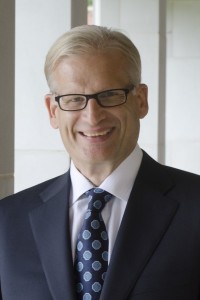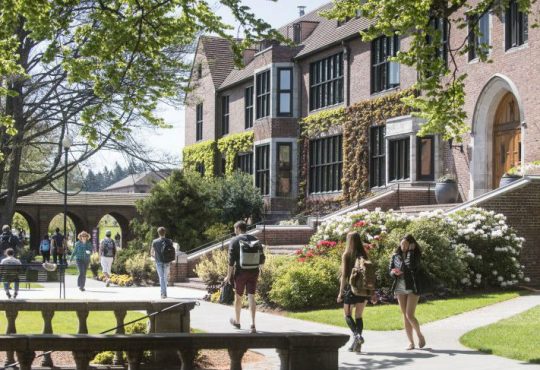By Emily Schuelein
The presidential search is coming to an end with two finalists for the position and the hope that the new president will begin work July 1 2016, according to the Presidential Search Profile. President Ronald Thomas hopes to end his 13-year tenure as the University’s 13th president in the coming months as it is a “right and natural time for a leadership transition,” according to a campus-wide email from his office.
“The committee has completed its work because their job isn’t to choose the president but to identify the candidates. Search processes typically take, especially for a position like this, about a year or a little more than a year,” Gayle McIntosh, Executive Director of Communications, said. “One of the board of trustee’s primary duties is selection of the institute’s president.”
“The board of trustees will meet Feb. 25 to 26, 2016,” ASUPS president Nakisha Renee Jones, who sits on the Presidential Search Committee, said.
The Presidential Search Committee represented “members of the board of trustees as well as Puget Sound faculty, staff, students, alumni and parents,” Robert Pohlad, chair of the committee, said in a campus-wide email.
The committee worked with “AGB Search in a hybrid process between an open and closed search,” McIntosh said. According to their site, AGB Search is a consulting firm “focus[ing] exclusively on higher education leadership.”
In a nod to student protests in the fall semester demanding a “diverse president,” Pohlad’s email to the campus mentioned that of the 10 semi-finalists in late 2015, there were four women and four people from “historically underrepresented groups.”
The presidential search committee, as well as student, faculty and staff representatives, met the “two finalists for off-campus interviews on Jan. 25 and 26, 2016” according to a campus-wide email from the presidential committee. The identities of those candidates were kept confidential, with interview meetings kept closed, and interviewers asked to sign confidentiality forms.
“There’s any number of reasons why candidates might choose a closed process, for example if you were a sitting president at another institution… and not ultimately chosen for this position,” McIntosh said.
“There is value to open interviews. The impact on campus was somewhat controversial because of Puget Sound’s history of having open searches,” Jones said.
In regards to whether or not enough student representation was involved in the search, Jones said, “out of all the students, it was at least a better choice to ask the ASUPS president because I have a lot of student contact. I am planning on making a resolution for more students and staff to change the overall composition of the presidential search committee in the future. Students will be able to support this resolution.”
Some of the desired presidential attributes include: “an informed and committed leader, a person who values teaching and scholarship, a proven fundraiser, a leader who focuses on students and an inspirational leader.” A full list of desired presidential attributes is listed in the Presidential Search Profile.
As to how the University will change with a new president: “the university operates under a shared governance model,” McIntosh said.
“Typically the new president won’t have an agenda and will try to get the feel of the campus” during the first year,” Jones said.


